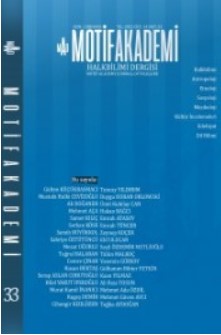IDEOLOGICAL TRANSFORMATION IN CARYL CHURCHILL’S PLAY, MAD FOREST: A PLAY FROM ROMANIA
IDEOLOGICAL TRANSFORMATION IN CARYL CHURCHILL’S PLAY, MAD FOREST: A PLAY FROM ROMANIA
Author(s): Emrah AtasoySubject(s): Theatre, Dance, Performing Arts, Political history, Post-War period (1950 - 1989), British Literature
Published by: Motif Halk Oyunları Eğitim ve Öğretim Vakfı
Keywords: Caryl Churchill; Mad Forest; epic theatre; political drama; deconstruction;
Summary/Abstract: Contextual social, political, and cultural developments have a substantial impact on political drama. These events have a potential to function as inspirational sources for playwrights in terms of subject matter. Dramatist Caryl Churchill draws on social and political developments, merging reality with fictional scenarios. Churchill makes use of the 1989 Romanian Revolution in her play, Mad Forest (1990), a concrete example of how Churchill incorporates the historical reality into her literary legacy. In her discussion, she also draws on Bertolt Brecht’s epic theatre and numerous Brechtian techniques such as the concept of alienation effect by means of music, songs, and dance, and surreal elements like vampire and angel, episodic structure, multiple casting, and open-endedness. Through specific references to the play and relevant secondary sources, this study will, therefore, discuss the 1989 Romanian Revolution as portrayed in the play by highlighting the epic theatre elements used in Mad Forest, and demonstrate how it does not become clear to certain characters in the play whether the revolution has really taken place or not. Through this discussion, this article will also indicate people’s liability to manifest different attitudes and approaches under the influence of suppression, as a new discourse is reconstructed after the deconstruction of the initially adopted discourse. This analysis will ultimately expose the transitory nature of a specific paradigm within a specific period, the plurality of perspectives, and different facets of truth rather than one fixed definition.
Journal: Motif Akademi Halkbilimi Dergisi
- Issue Year: 14/2021
- Issue No: 33
- Page Range: 362-373
- Page Count: 12
- Language: English

